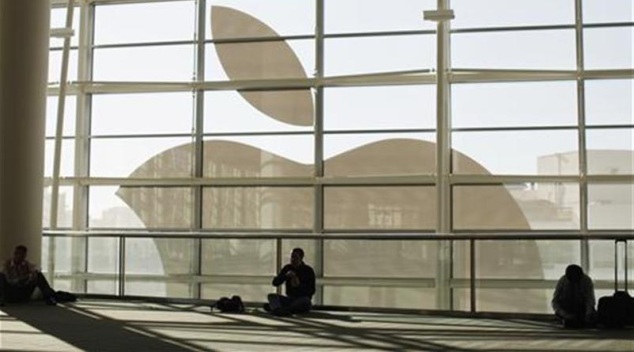- Home
- Internet
- Internet News
- What will Apple, Google and Microsoft do with their cash hordes?
What will Apple, Google and Microsoft do with their cash hordes?

Being flush with cash is a good thing, but it also poses a public relations problem for US technology giants amid an election year debate about economic patriotism.
Some say the shifting of profits overseas is a huge tax avoidance scheme, and that loopholes should be closed.
Others say the situation calls for a "tax holiday" to encourage firms to repatriate funds and invest in the US economy.
The cash stockpile is not only a tech phenomenon. Various estimates say more than $1 trillion in US corporate cash is now held overseas.
But the most prominent and fastest-growing cash piles come from those tech firms that can easily use transfers among foreign subsidiaries to keep US tax liabilities low.
"Any company with intellectual property, whether it is software or how to make a drug, has the opportunity to assign the ownership to a foreign subsidiary in a tax haven," said Robert McIntyre, director of the activist group Citizens for Tax Justice.
In examining Apple, McIntyre said, "what you discover is that essentially all of the money it has offshore has never been taxed by anyone."
A July report by Moody's Investors Service said 22 US-based technology companies had $289 billion, 70 percent of their total cash, overseas at the end of March and forecast this would grow to $400 billion within three years.
Moody's said companies are reluctant to bring these funds back to US soil where they would be taxed, possibly at the top corporate rate of 35 percent.
Under US law, companies get a deferral of these taxes until the money is repatriated.
Until recently, some major companies had been lobbying for a new "tax holiday" to allow repatriation at a reduced rate, similar to a 2004 effort which allowed firms a tax rate of just 5.25 percent.
Microsoft and Cisco, along with other multinationals such as pharmaceutical giant Pfizer joined an effort last year, saying it could create some 2.9 million jobs.
The group called WinAmerica suspended its effort as the US presidential election ramped up.
But a WinAmerica spokesman said the group "is committed to working with Congress and the administration after the election to reform the tax code and inject nearly a trillion dollars into the US economy."
Earlier this year, Apple chief financial officer Peter Oppenheimer expressed a similar view, saying, "repatriating the cash from offshore would result in significant tax consequences under current US law."
"We have expressed our views with Congress and the administration. We think that the current tax laws provide a considerable economic disincentive to US companies that might otherwise repatriate the substantial amount of foreign cash that they have," Oppenheimer said.
The Obama administration has opposed a tax holiday, saying the 2004 effort failed to deliver on its promise.
Former assistant treasury secretary Michael Mundaca said last year of the 2004 tax holiday: "Unfortunately, there is no evidence that it increased US investment or jobs, and it cost taxpayers billions."
Presumptive Republican presidential nominee Mitt Romney has proposed replacing the US system of "worldwide" taxation with a "territorial" system, meaning profits would be taxed only in the jurisdictions earned.
A Romney campaign statement says the current rules "encourage American multinational companies to park their profits permanently overseas."
But Seth Hanlon of the Center for American Progress said the Romney tax plan would "enhance the tax code's rewards for moving jobs and investments overseas" and "provide a gratuitous windfall" to some firms while cutting US tax receipts.
Apple has been a particular target of those seeking new revenues.
An analysis by Citizens for Tax Justice found that if worldwide profits are included, Apple's effective tax rate in the US is around 12 to 14 percent in the period from 2006 to 2011 instead of the 31 percent in company documents.
McIntyre said the only effective way to bring up the rate would be a worldwide tax system without loopholes like deferral, which he said costs the US some $600 billion over 10 years.
Jacob Frenkel, a Maryland attorney who specializes in corporate governance, said the effort by Apple and others to keep taxes low in not just fully legal, but also in line with their fiduciary duties.
"Their primary obligation is to their shareholders and to do what is in the best interest of the company," Frenkel said.
Additionally, Frenkel said that "more and more American corporations are finding the US regulatory structure to be so burdensome that they almost regret they are US-based corporations."
Christopher Bergin, a tax lawyer who publishes a series of newsletters on fiscal matters, said blaming companies like Apple misses the point.
"The problem is not Apple, the problem is the US Congress," Bergin told AFP. "The corporate tax system is broken."
Bergin said that the US tax code for business is so full of loopholes, big firms employ armies of lawyers and experts to determine how to legally reduce taxes.
Some of these loopholes have exotic-sounding names like a "Double Irish" or "Dutch Sandwich," which refer to specific techniques to transfer among subsidiaries to lower taxes.
"There is nothing wrong with Apple taking advantage of the tax rules as written," Bergin said. "As far as unfair, it's the tax code.
"So simplify the tax code, eliminate the loopholes. Maybe it is time to eliminate the corporate tax code and replace it with something else."
For details of the latest launches and news from Samsung, Xiaomi, Realme, OnePlus, Oppo and other companies at the Mobile World Congress in Barcelona, visit our MWC 2026 hub.
Related Stories
- Samsung Galaxy Unpacked 2026
- iPhone 17 Pro Max
- ChatGPT
- iOS 26
- Laptop Under 50000
- Smartwatch Under 10000
- Apple Vision Pro
- Oneplus 12
- OnePlus Nord CE 3 Lite 5G
- iPhone 13
- Xiaomi 14 Pro
- Oppo Find N3
- Tecno Spark Go (2023)
- Realme V30
- Best Phones Under 25000
- Samsung Galaxy S24 Series
- Cryptocurrency
- iQoo 12
- Samsung Galaxy S24 Ultra
- Giottus
- Samsung Galaxy Z Flip 5
- Apple 'Scary Fast'
- Housefull 5
- GoPro Hero 12 Black Review
- Invincible Season 2
- JioGlass
- HD Ready TV
- Latest Mobile Phones
- Compare Phones
- Apple iPhone 17e
- AI+ Pulse 2
- Motorola Razr Fold
- Honor Magic V6
- Leica Leitzphone
- Samsung Galaxy S26+
- Samsung Galaxy S26 Ultra
- Samsung Galaxy S26
- MacBook Pro 16-Inch (M5 Max, 2026)
- MacBook Pro 16-Inch (M5 Pro, 2026)
- Apple iPad Air 13-Inch (2026) Wi-Fi + Cellular
- Apple iPad Air 13-Inch (2026) Wi-Fi
- Huawei Watch GT Runner 2
- Amazfit Active 3 Premium
- Xiaomi QLED TV X Pro 75
- Haier H5E Series
- Asus ROG Ally
- Nintendo Switch Lite
- Haier 1.6 Ton 5 Star Inverter Split AC (HSU19G-MZAID5BN-INV)
- Haier 1.6 Ton 5 Star Inverter Split AC (HSU19G-MZAIM5BN-INV)
















